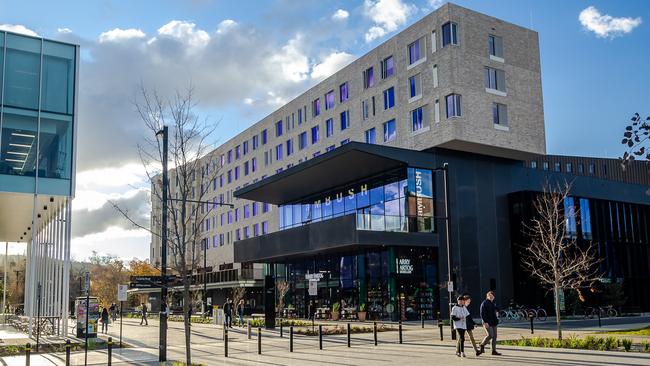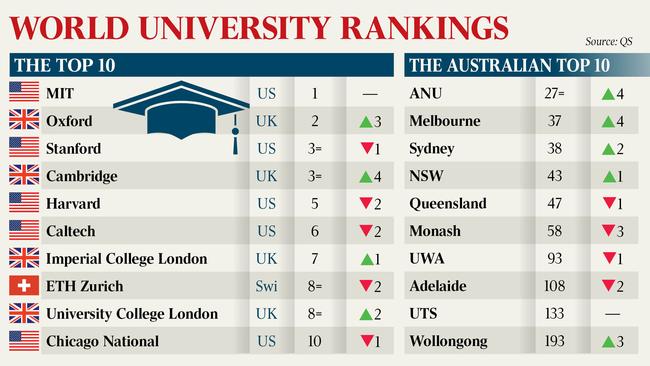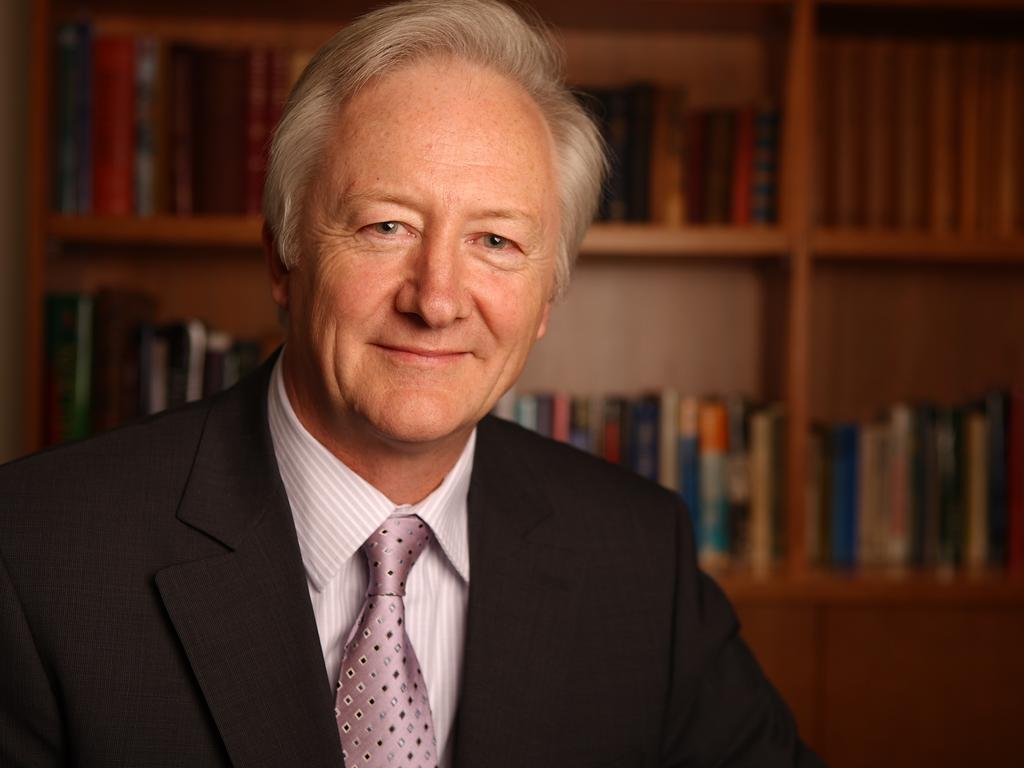Australian universities get a break in global rankings
One of the world’s top ranking groups has given leeway to unis hit by Covid, affecting Australia’s institutions | FULL LIST

One of the world’s top university ranking groups has given generous leeway to universities affected by Covid, which means that Australian institutions have easily held their positions in the latest global league tables.
The 2022 QS World University Rankings show that Australia’s four top universities – the Australian National University, the University of Melbourne, the University of Sydney and UNSW – each nudged higher on the list, even though the university sector lost billions of dollars in international student fees last year because of borders being closed, and cut thousands of academic jobs.
QS director of research Ben Sowter said the group had “made a concession globally on international student data” allowing universities to submit figures from 2019 instead of 2020 so that all institutions were treated equivalently. “This was not to avoid the Covid problem but to recognise that it hit different markets at different times,” he said.

QS measures the proportion of international students at a university as a proxy for internationalisation and as an indication of a university’s ability to attract talent from around the world.
The fact that Australian universities have high proportions of international students compared with the rest of the world is one of the reasons they do well in the QS rankings, although it contributes only 5 per cent of a university’s performance measure.
Another reason why Covid has not yet affected the QS university rankings is that reputation surveys of academics and employers — which account for 50 per cent of a university’s ranking — are measured over the past five years, which means that recent changes have little impact.
Mr Sowter said another positive for Australian universities in the rankings was their high rates of citation of research papers. The QS data shows that 11 of the world’s top 100 universities measured by research citations (adjusted for the number of academic staff) are Australian.
Mr Sowter said the next five to 10 years would be an interesting journey for universities as the shocks from Covid impacted on the measures used for ranking universities.
The ANU held its place as the top Australian university of the QS rankings moving from equal 31st to equal 27th. The University of Melbourne, which had the 17th best academic reputation score in the world, moved up from 41st to 37th. The University of Sydney, which had the 29th best employer reputation score in the world, moved from 40th to 38th.
While the fall in international enrolments had not yet affected the rankings of Australian universities, Mr Sowter said it presented a financial threat to universities and would “also jeopardise the intellectual diversity and exchange that are causing Australia’s institutions to thrive”.
Internationally, the Massachusetts Institute of Technology retained its world No.1 place, with Oxford moving from fifth to second, and Stanford and Cambridge rated as equal third.








To join the conversation, please log in. Don't have an account? Register
Join the conversation, you are commenting as Logout